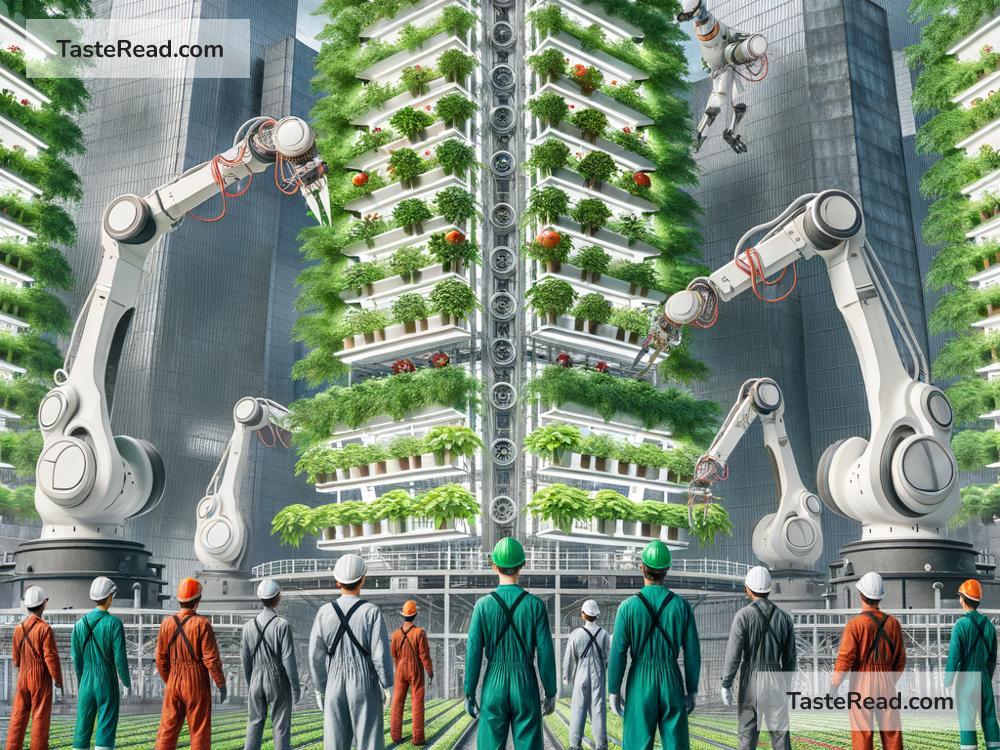The Future of Food and Labor Rights: Building a Sustainable and Fair World
The food we eat today connects us to farmers, factory workers, delivery drivers, and many others who help make meals possible. As our world changes with advances in technology, climate challenges, and shifting values, the future of food and labor rights is becoming increasingly important. By thinking about how food and work will evolve, we can create systems that are better for both people and the planet.
The Changing Face of Food
When we think about food, we often picture farms, markets, and kitchens. But the way food is grown, processed, and distributed is quickly evolving. Here’s how:
-
Technology’s Role in Farming
Advances in agricultural technology are reshaping farming. Drones can monitor crops, robots can harvest fruits, and sensors can track soil health. These tools help farmers grow food more efficiently, reduce waste, and increase yields. However, as machines take over many tasks, some farmworkers may lose their jobs. It’s important to balance innovation with programs that support workers transitioning to new careers. -
Lab-Grown and Alternative Foods
Scientists are developing ways to grow meat in labs and make plant-based versions of popular foods like burgers, cheese, and milk. These alternatives use fewer resources, like water and land, while reducing harm to animals. They might help fight climate change, too, by lowering greenhouse gas emissions. However, such changes raise questions: Will traditional farmers still have jobs? Will these new foods be affordable for everyone? -
Slow vs. Fast Food Cultures
Many people today enjoy fast and convenient food, often relying on delivery apps and ready-made meals. But there’s also a growing movement toward local, organic, and homemade meals that take time and care to prepare. The future of food may involve balancing these preferences, ensuring everyone has access to nutritious and affordable options.
Labor Rights in the Food Industry
Behind every plate of food are countless workers who produce, process, and deliver it. They are the backbone of our food systems, yet many face difficult working conditions. So, what does the future hold for labor rights?
-
Fair Wages for Food Workers
Workers in farming, food processing, and restaurants often earn low wages. In the future, it’s crucial to prioritize fair pay for these workers. If the cost of food rises as a result, we’ll need to rethink systems to subsidize healthy food for low-income families while ensuring workers earn a livable wage. -
Safe Working Conditions
Many food workers face unsafe or unhealthy environments, like exposure to dangerous chemicals in farming or long hours without breaks in kitchens. Robots and automated systems might help replace some hazardous tasks, but human workers will still need protections. Governments, businesses, and communities must continue to push for stronger labor laws and inspections. -
Empowering Migrant Workers
Many farmworkers and food industry employees are immigrants or seasonal workers. They often lack access to healthcare, job security, and basic rights. In the future, we need better policies to protect these workers and give them stability, regardless of their immigration status. Treating everyone with dignity is key to a fair food system. -
Union and Worker Advocacy
Strong unions and organizations that fight for workers’ rights will play a critical role in shaping the future of labor. By giving workers a voice, these groups can help ensure fair treatment, equal opportunities, and better working conditions.
What We Can Do
Both the food industry and labor systems are interconnected with the health of our planet and society. As individuals, communities, and policymakers, we can take steps to ensure a sustainable and fair future.
-
Support Sustainable Farming
Buy food from local or ethical sources when possible. Supporting farmers who care for the environment and their workers can create positive change. -
Advocate for Workers’ Rights
Learn about labor policies in your area, vote for leaders who prioritize fair wages and safe working conditions, and support businesses that treat employees well. -
Reduce Food Waste
Around one-third of all food produced globally is wasted. By being mindful of what we buy and consume, we can ease the burden on farmers and reduce pressure on natural resources. -
Educate Yourself and Others
Awareness is key. Share information about food systems and labor rights with friends and family. The more people understand, the more change we can create together.
Looking Forward: A Balanced Approach
The future of food and labor rights will likely be shaped by technology, climate concerns, and evolving social values. As we move forward, it’s important to find a balance that benefits everyone—workers, consumers, and the planet.
Imagine a world where robots and humans work side by side to grow food sustainably, where meat alternatives are tasty and affordable, and where every worker earns a fair wage and has safe conditions. This vision may seem ambitious, but it’s possible if we all work together. Governments, businesses, scientists, activists, and everyday people can collaborate to build systems that prioritize fairness and sustainability.
Food connects us all. By thinking about the future and making thoughtful choices today, we can create a world where both the meals on our plates and the people who prepare them thrive. Let’s work toward that future—one bite and one step at a time.


